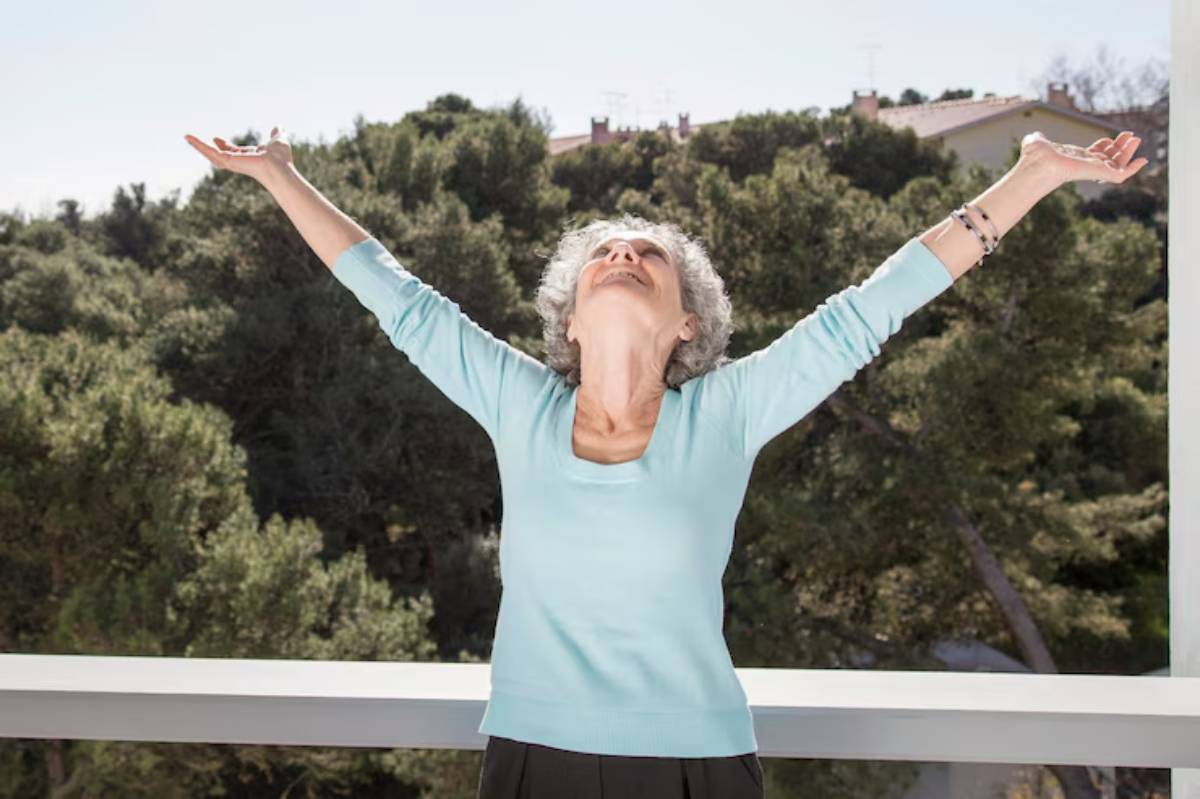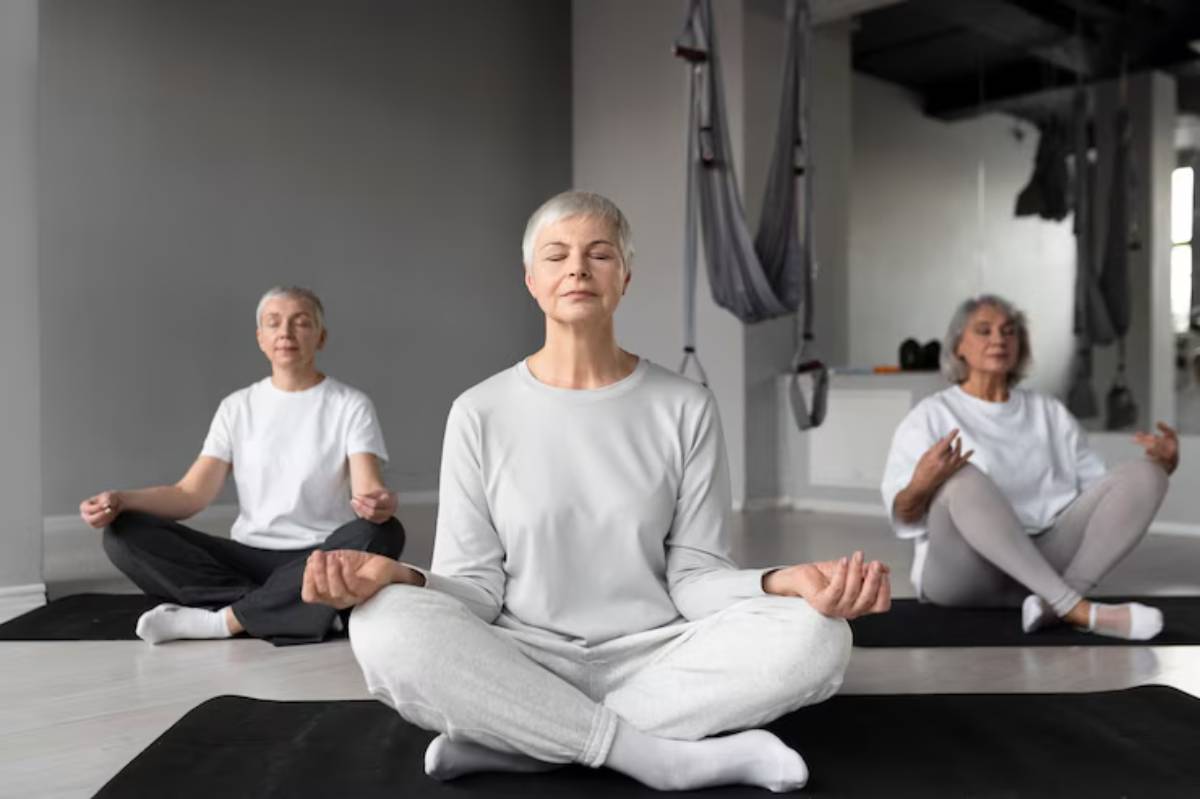The Health & Wellness Blog

Staying Active and Present: Mindfulness in Retirement
Retirement is one of the greatest milestones in our journey of life. Becoming settled in life has its challenges. It can be tough to maintain an active and meaningful lifestyle. In this blog, we explore mindful ageing and how to stay active and present during retirement. Adding mindfulness to daily tasks can boost retirees’ well-being. It also gives them a sense of purpose and happiness.
In a contemporary society with a busy lifestyle, mindfulness is essential. It’s a potent tool to mitigate stress and enhance mental clarity and emotional resilience. For retirees, mindfulness can be life-changing. It helps them enjoy each moment and engage in activities that nourish both body and soul. Many people have misunderstandings about mindfulness. Some see it as a strict practice only for those who are spiritual. In reality, mindfulness is accessible to everyone and can be seamlessly woven into various aspects of life.
Key Benefits of Mindfulness in Retirement
Enhancing Active Ageing
Active ageing means staying physically, mentally, and socially engaged as we age. Mindfulness is key in this journey. It helps people stay present and engage fully in activities that boost health and energy. Doing mindfulness activities such as yoga, tai chi, or mindful walking helps boost flexibility, balance, and strength. This helps lower the risk of falls and other age-related problems.
Research supports the link between mindfulness and improved physical health. A study in the Journal of Ageing and Health found that older adults who practised mindfulness had better physical functioning. They also reported higher activity levels than those who did not practice mindfulness. Mindfulness boosts retirement wellness by promoting an active lifestyle. This helps people enjoy their golden years with energy and excitement.
Promoting Emotional Well-being
Retirement can bring a lot of emotional changes. People often face shifts in their identity, daily routines, and social ties. Mindfulness offers a pathway to emotional well-being by fostering self-awareness and acceptance. Regular mindfulness practice helps retirees understand their emotions better. It also teaches them to face challenges with more calmness.
Mindfulness activities like meditation and journaling offer retirees a safe space. Here, they can explore their thoughts and feelings without judgment. This practice can lead to reduced anxiety and depression, as well as increased feelings of gratitude and contentment. Mindfulness helps retirees build emotional resilience. This lets them embrace change and enjoy the present moment.
Strengthening Social Connections

Social engagement is key to active ageing. Mindfulness can improve the quality of these social interactions. Practising mindfulness helps retirees listen better, feel more empathy, and build strong connections with others. Mindfulness helps people stay present in conversations. This leads to more genuine and satisfying relationships.
Joining group mindfulness activities offers chances for social interaction and community building. Activities include meditation classes or workshops. Shared experiences build belonging and support. This is crucial for mental and emotional health in retirement.
Additional Expert Tips & Common Mistakes to Avoid
Best Practices for Mindful Retirement
- Set Intentions: Begin each day with a mindful intention, focusing on what you hope to achieve or experience. This practice can guide your actions and help you stay aligned with your values.
- Incorporate Mindfulness into Daily Activities: Mindfulness is not limited to formal meditation sessions. It can be integrated into everyday tasks, such as eating, walking, or even doing chores. Focusing on the present can turn daily tasks into chances for mindfulness.
- Practice Gratitude: Being grateful is a strong mindfulness practice. It can boost your wellness in retirement. Take time each day to reflect on the things you are grateful for, whether they are big or small. This practice can shift your focus from what is lacking to what is abundant in your life.
Common Mistakes and Misconceptions
- Expecting Immediate Results: Mindfulness is a skill that requires practice and patience. It is important to approach mindfulness with an open mind and realistic expectations. Over time, the benefits will become more apparent.
- Viewing Mindfulness as a Solitary Practice: Mindfulness can be practised alone, but it can also be a group experience. Joining group activities or mindfulness communities can enhance your practice. They also offer extra support.
- Neglecting Physical Activity: Mindfulness and physical activity are complementary, not mutually exclusive. Adding movement to your mindfulness practice, like mindful walking or yoga, boosts your physical and mental health.
Advanced Insights and Expert Recommendations

Embracing a Holistic Approach to Retirement Wellness
A holistic approach to retirement wellness looks at how physical, mental, and social health connect. Mindfulness ties these elements together. It helps create a balanced and fulfilling lifestyle.
- Mind-Body Connection: Recognise the profound connection between the mind and body. Mindful breathing and body scans can help retirees notice their physical sensations and relax.
- Mindful Nutrition: Eating mindfully means noticing the flavours, textures, and smells of food. This practice can enhance the enjoyment of meals and promote healthier eating habits.
- Creative Expression: Doing creative activities like painting, writing, or making music can help with mindfulness. These activities help retirees share who they are and discover new parts of themselves.
Unique Industry Perspectives
Gerontology experts highlight how important lifelong learning and personal growth are during retirement. Mindfulness can support this endeavour by fostering curiosity and openness to new experiences. Retirees should try new hobbies, join workshops, and take part in activities. These can challenge their minds and broaden their horizons.
Conclusion: Embracing Mindfulness for a Fulfilling Retirement

Mindfulness is a great companion on the retirement journey. It helps with active ageing, emotional balance, and stronger social ties. By practising mindfulness activities every day, retirees can embrace this new stage of life with grace and energy.
If you are new to mindfulness, try to start small and take baby steps. Set aside time daily for mindfulness. This can include meditation, mindful movement, or gratitude journaling. Look for chances to connect with others and get involved in your community. Stay open to new experiences and learning.
In conclusion, staying active and present in retirement is achievable and immensely rewarding. Mindfulness helps retirees build a life of purpose, joy, and fulfilment. What mindful practices will you incorporate into your retirement journey? The possibilities are endless, and the benefits are profound.









